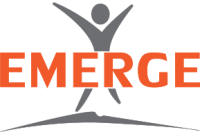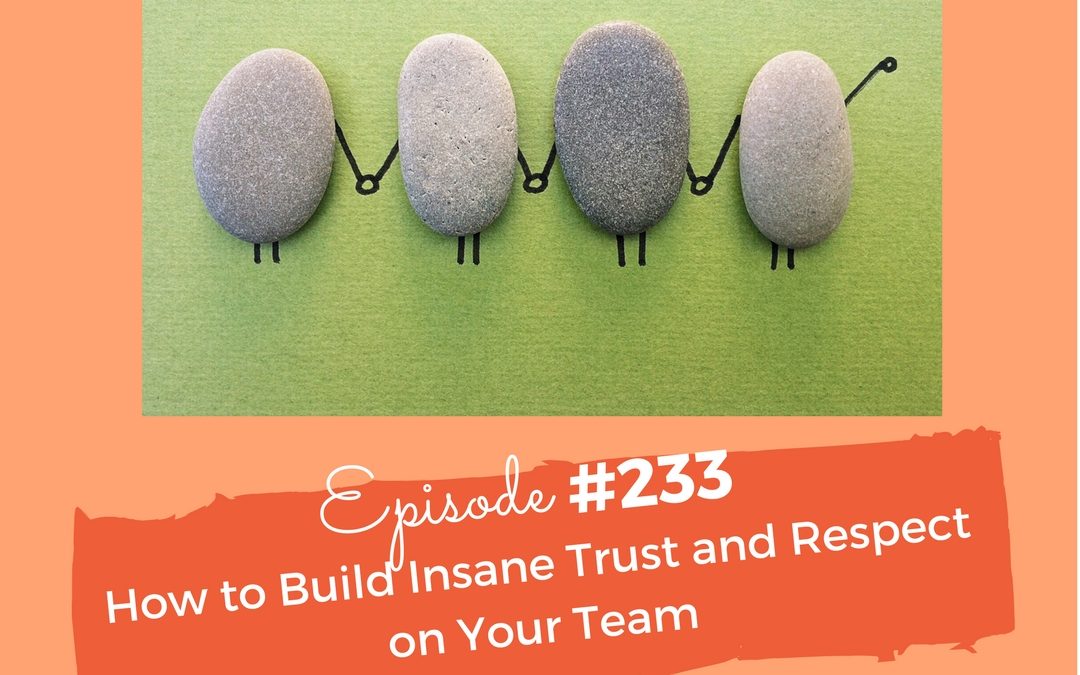Today I want to talk to you about how to build insane trust and respect in a team, and the team-building exercise that my leadership team did that had results above and beyond what I could have ever expected.
So I run a virtual team, and I’m thinking that many of you do as well. I have managed virtual teams for a really, really long time, and so this is something that I’ve always felt I was pretty good at: creating team camaraderie in multiple locations.
But I didn’t realize that there was still so much more room for me to improve. There’s a difference between mutual friendship, and mutual trust and respect.
I want you to think about the top people on your network marketing team. Are they united? Are they cohesive? Are they all going in the same direction? Do they trust each other and do they respect each other enough to have each other’s back?
I have been reading the book The Advantage by Pat Lencioni. In it there are four things that we need to do as leaders to provide a thriving organizational culture. This applies to any very large corporation – a small business like myself, or a network marketing business.
#1: A Cohesive Leadership Team.
#2: Established Clarity.
#3: Communicate Clarity.
#4: Over-Communicate Clarity.
I thought, “Well I should start with number 1.” I have three members on my leadership team, four including me, and then I technically have my business coach, but she was not involved in this exercise.
We kind of had the ultimate bonding experience just a few weeks ago. We were all in San Diego for a conference and just took a little time out from that conference. We did these exercises…
Actually, let me backup a little bit: last summer everybody came into Southern California; we’d had a really amazing quarter, and I wanted to treat them well and reward them.
So we actually flew everyone into Emerge “Headquarters,” we went to a winery nearby, did a spa day, went out to a fancy dinner, and in general just hung out. They got spoiled for two days, and it was really, really fun. There was bonding and friendships that formed; we laughed together, and it was really really fun. But none of that compared to what I saw when we were in San Diego.
So…here’s the exercise: We asked, “Which sibling are you in a lineup?” and then, “What is one challenge that you overcame as a child or what’s the most interesting thing you did as a child?”…and we went around the room.
Now, for myself, as more of a public figure than my team I have had to be a lot more public with my past triumphs and failures than most people do, so I didn’t really get how powerful this was gonna be. Because for me they all already knew my biggest challenge when I was young, and that was this massive, fatal car accident I was in when I was 16.
They’re like, “Okay, you go first because leaders go first,” so I did mine and they’re like “Yeah, yeah, yeah…we know this story,” and they went around the room to share their stories.
I’m not gonna share the stories, that’s not my place. These are confidential stories and are pretty deep, and every single person shared things that, despite me knowing them and feeling like I knew them really, really well, I had no clue to the extent that this shaped them.
I was just sitting there, my jaw was dropped. On the StrengthsFinder assessment, that I think a lot of people have taken, empathy is 33 out of 34 strengths. I was really uncomfortable in this situation, but the rest of them, well, they’re big mush balls…so they were all hugging and crying; I don’t know if they were crying, but, you know, they were really, really touched, and connected. And what happened was just remarkable.
What I found is the four of us just look at each other differently. We look at each other as people that can overcome great challenges, and the amount that it bolstered our confidence as far as overcoming our next challenge as a sales training company was just amazing.
What I’ve seen in the past few weeks is while we always had this friendship, but mutual respect and the support that has happened since then has just been really phenomenal.
What I notice is that I didn’t know these things, because it doesn’t come up in conversation. You can know someone really, really well and it’s, “How was your weekend? What are you doing? What’s bugging you?” and you can know they’re present really, really well.
When I think about Joelle, I’ve known her several years, I’ve know Karen several years, Kristen just a couple years, but, I mean, we talked so much I felt like I really know them.
Except never do we say or ask questions like, “What was the most challenging thing you experienced in childhood?” Just pulling one out like, “What’s the catastrophic thing that happened in your family that shaped everything about the way you are?”
What was so interesting is that the way we related with each other was made complete sense based on the stories that each person told. It just explained everything about the relationship to how they showed up at work, because it was the biggest thing about who they were. It was just so cool.
I wanted to share that with you, because I know that when we have teams sometimes things can get disjointed. But team culture is a leadership skill; it is up to you to define what type of team culture you want.
Do you want one where everyone’s on their own? Or do you want one where everyone has each other’s back?
When we know each other in ways that other people don’t know each other, it creates this mutual respect and trust. We respect each other’s competence, because we’ve seen that they have to overcome so much more than whatever the business problem at hand is.
The other piece of this exercise is just to take some sort of assessment, kind of like a personality profile. Ever since I started Emerge, we’ve worked heavily with the StrengthsFinder Assessment, and so we unlocked everybody’s “All 34,” and we went through them. We just had a good laugh about who we were and who we weren’t.
The reason this is powerful is because of this concept called the “Fundamental Attribution Error,” and what that means is when something is hard for us, we tend to blame the environment and the circumstances.
But when someone else has a flaw, we blame the person instead of just looking at it as maybe the environment, or it might be something else. So we end up giving more grace when we make mistakes for ourselves than we give to others.
Once you do an assessment and you say, “Hey, this is just who I am,” then it removes the judgment from when we do really well, or when we make errors.
To give an example…because empathy is not a strength of mine, I was incredibly uncomfortable, so to take the tension out of the room I laid on the ground in the fetal position and then proceeded to joke at how uncomfortable I was.
Because of Fundamental Attribution Error, though, because they all knew that Empathy was number 33 out of 34, they just all smiled and knew that I just couldn’t even deal.
This would have been super inappropriate though, if my team didn’t actual know who I was and who I wasn’t…it would have been disrespectful and hurtful. It helped to take the things that I’m not good at (#empathy), and it made it become more neutral as opposed to something that is hurtful, and I think that’s why it’s so powerful to go through some sort of assessment like this.
I think a lot of people are using the Strengths Finder, and I think that’s great. I think there’s a lot you can do at the top five; I think there’s even more you can do with awareness around all 34. I think it is very helpful in explaining your superpower and your kryptonite.
What was also really cool about this assessment is we took our strengths and put them in four categories – the relationship category, executing, influencing, and strategic.
What we found when we organized our top key strengths is we have a relationship superpower here at Emerge. It was good that we built our company on that, but we decided that we were going to really double down on it, and so far it’s been really, really great for all of us. It’s filled all of us up to be able to do that.
So that is how to build insane trust on your team. So what I would recommend is to grab your leadership team together, and just have this talk: “What was the biggest challenge that you overcame? What are your strengths and what are not?”
Going through the first challenges to hear each of the stories from the four of our leadership team took under an hour, and there’s more trust built in that hour than in the past year and a half. That is incredibly remarkable, so I hope that you’ll take that tip and go for it.
Now, of course, balance it with whatever other things you have going on – you know this week might not be the right time, but it’s definitely something you can plan out because a cohesive leadership team is what’s going to feed your organizational culture in your network marketing business.
I hope that this was helpful for you. If you have any questions on this, or any comments, go ahead and email me back. I’d love to answer!
See you again soon!
Tasha

